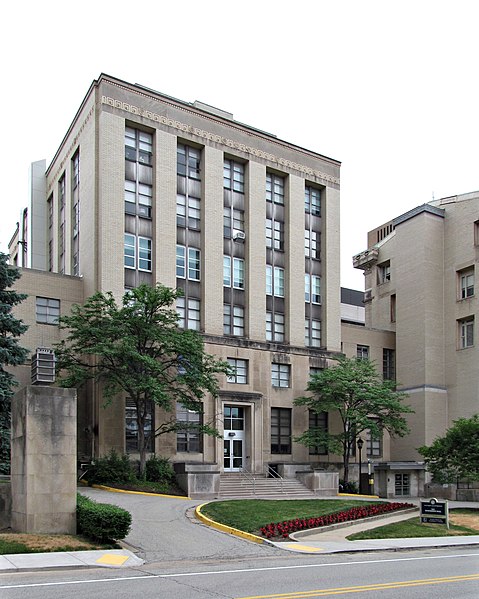
-
Howley Street, Lawrenceville
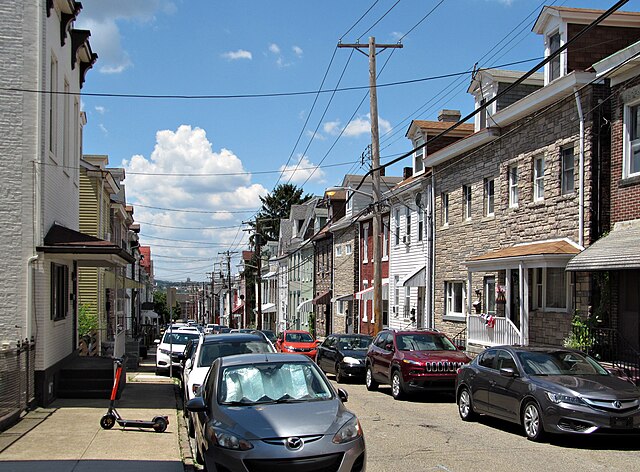
A typical street of miscellaneous rowhouses in Lower Lawrenceville. This part of the neighborhood has become desirable enough that the houses are well maintained, but not desirable enough that they are pseudo-Victorianized yet, so that we still see the full cacophony of things Pittsburghers have thought it might be a good idea to do to a Victorian rowhouse. Below, an Italianate house that seems to be under renovation (note the expensive but asymmetrical new front entrance).

-
Spotted Lanternfly

Lycorma delicatula, a beautiful but destructive invader from China. Above we see the adult version; below are three views of the nymph in its late stage (an earlier stage looks similar, but black instead of red).



Allegheny County is in the Spotted Lanternfly quarantine zone, where these pests have become a serious problem. Their favorite host is the Tree of Heaven, otherwise known as Pittsburgh Palm or Tree from Hell (Ailanthus altissima), which is itself a beautiful but destructive invader from China. Spotted Lanternflies were unknown in the United States until 2014; now they are all over Pittsburgh. Although old Pa Pitt is inclined to say they can have as many Pittsburgh Palms as they want, these critters also cause damage to many other trees and vines. If you see one, you know what to do.
Here’s more about the Spotted Lanternfly from the Pennsylvania Department of Agriculture.
-
The Original Mellon Institute

The Mellon Institute of Industrial Research was founded as part of the University of Pittsburgh, and this was its home for the first two decades of its life. When the Mellon Institute declared its independence, it moved to its palatial quarters out Fifth Avenue, and the old Mellon Institute building became Allen Hall at the University of Pittsburgh.
The building, which opened in 1915, was designed by J. H. Giesy, and it was properly classical to match Henry Hornbostel’s slightly mad plan of making the University a new Athenian Acropolis in Pittsburgh. (The plan was later abandoned in favor of Charles Z. Klauder’̑s much madder plan of a skyscraper university.)

The richly detailed bronze doors are unique.
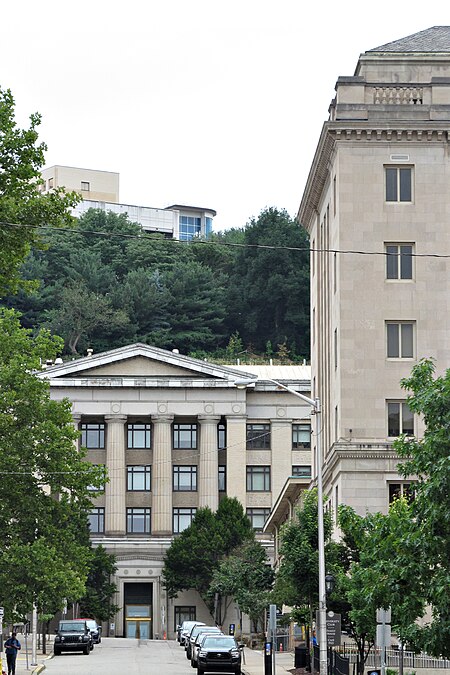
The building is precisely located for the best vista up Thackeray Street.
Here is a picture of the building when it was new in 1915:

And old Pa Pitt has duplicated that picture for you in 2022, because that is the kind of effort he puts into serving his readers:
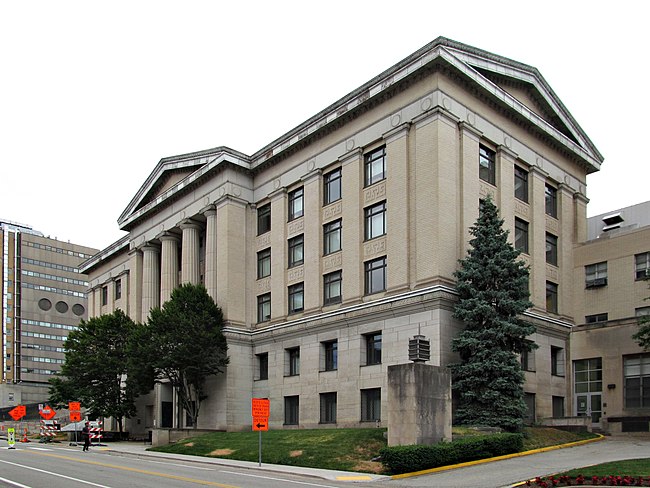
Nothing about the exterior has changed except the plantings, and even those have been reduced to show off the building: a few years ago much of the front was obscured by trees.
-
Maul Building, South Side
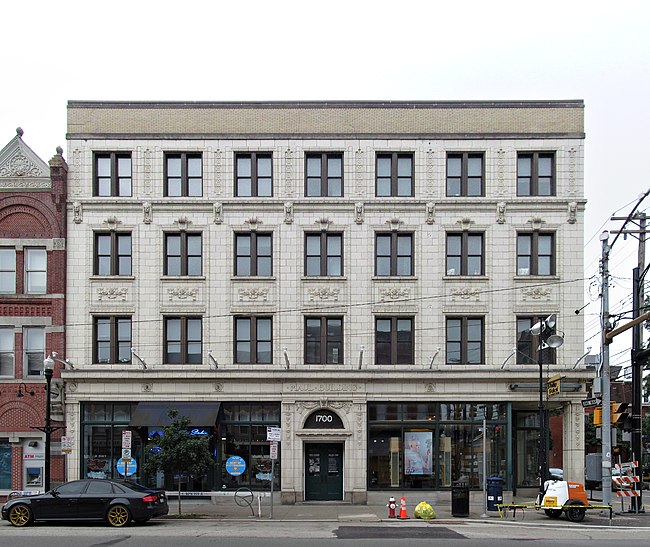
The Maul Building, built in 1910, was designed by the William G. Wilkins Company, the same architects who did the Frick & Lindsay building (now the Andy Warhol Museum). Both buildings are faced with terra cotta, and both lost their cornices—the one on the Andy Warhol Museum has been carefully reconstructed from pictures, but the one here is just missing. The rest of the decorations, though, are still splendid.




One response
-
The Fan House for the Liberty Tubes
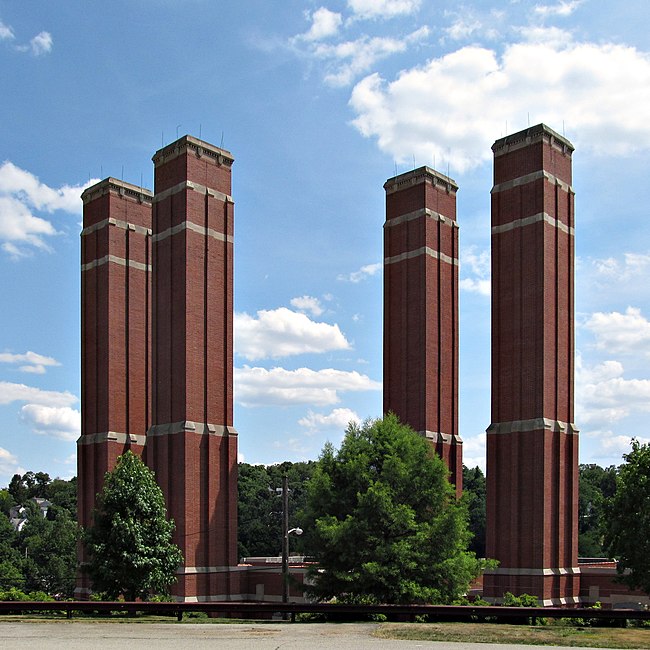
Update: Although it is often written that the fan houses were built in response to the near-disaster of the Tubes’ first traffic jam, it turns out that the ventilation system was planned from the beginning, with the fan house and stacks at their current location. Source: The American Contractor, July 14, 1923: “Fan Houses & Stacks: $133,000. 1 sty. 190×110. Liberty Tunnell, cor. Senate [sic, = Secane] & Ruth, Pittsburgh. Archt. A. D. Meeld, 708 Bakewell bldg., Pittsburgh. Owner The Commrs. of Allegheny Co., A. C. Gumbert, Court House, Pittsburgh. Brk. & limestone. Gen. contr. let to Williams & Hass, Empire bldg., Pittsburgh. Htg. & plmg. to United Gas Improvement Co., Broad & Arch sts., Philadelphia, Pa.”
Father Pitt keeps the original article below, but read it with that knowledge in mind.
When the Liberty Tubes opened in 1924, they had no ventilation system. They didn’t need one, the engineers said. Cars whooshing through the tunnels would carry the bad air out with them.
If you have ever driven in the Liberty Tunnels at rush hour, you can probably spot the flaw in that theory.
It did not take long for the flaw to become obvious. On May 10, 1924—when a transit strike was going on—a traffic jam filled the tunnel, and more than forty people passed out and needed medical attention. It was lucky no one died.
The fan house finally went into service in 1928. It has four giant chimneys, two for intake and two for exhaust. They’re a prominent landmark on the back side of Mount Washington, although it can be fiendishly difficult to find one’s way to them in the warren of precipitous streets.
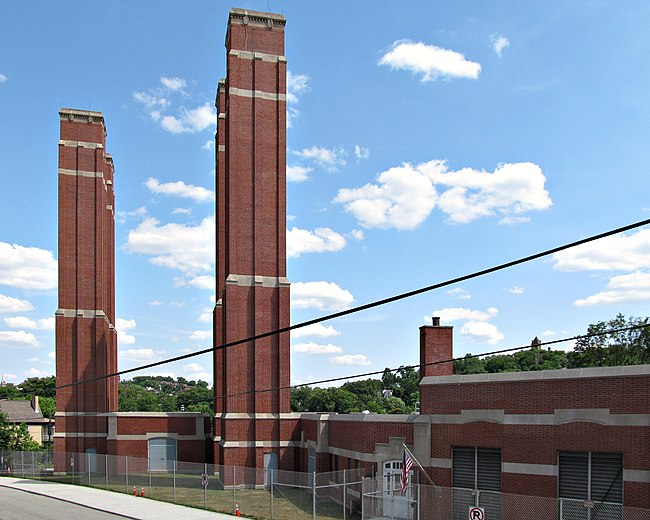


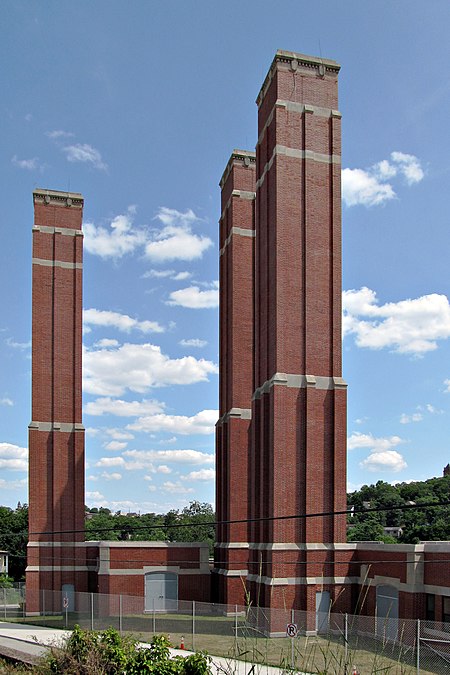
We should note that sources disagree about whether the fan house was part of the original plan. In some tellings (like the Wikipedia article), it was a reaction to the disastrous traffic jam of May 10. In others (like this very interesting feature from WESA), it had been planned all along, but the tunnels were opened well before the ventilation system was completed. Father Pitt has not been able to sort out which version is the real story in the limited time he was willing to devote to research, and he invites anyone with a good source to speak up in the comments. (Update: Father Pitt himself found the good source, and you have seen the results in the update above.)
-
Church of the Holy Cross, Homewood

In many neighborhoods this would be the most distinguished building, but of course Homewood has Holy Rosary Church. Nevertheless, this is an important building in its own right. It was built in 1904 as St. James Episcopal Church, but in 1953 it was bought by a Black Episcopalian congregation, which obviously showers love on this building. It was designed by Carpenter & Crocker, and the grandson of William James Carpenter gives us the story of the church on a site dedicated to his grandfather’s work. You can also read the story of the congregation from the church’s own site (the link goes to a page where you can download a PDF file).


3 responses
-
Duquesne Brewery, South Side
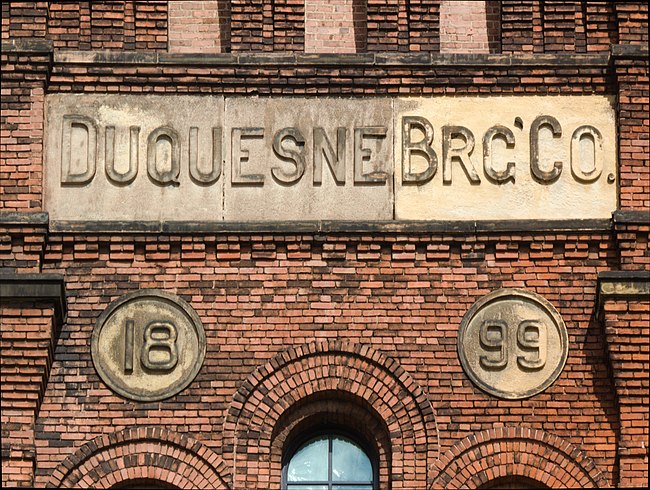
This started out as a fine Romanesque design for an industrial building; it sprouted more and more haphazard additions, and became something more like a European castle with its layers of contradictory history. Today, after an adventurous history of abandonment and adaptation, it is called “The Brew House” and is filled with lofts and artists’ studios.
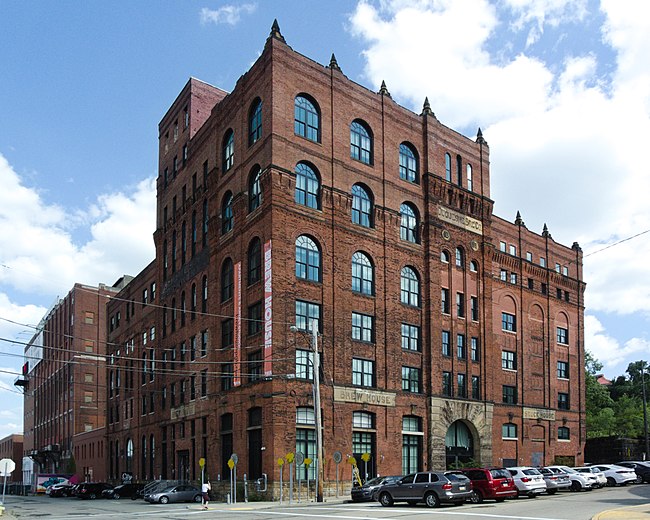
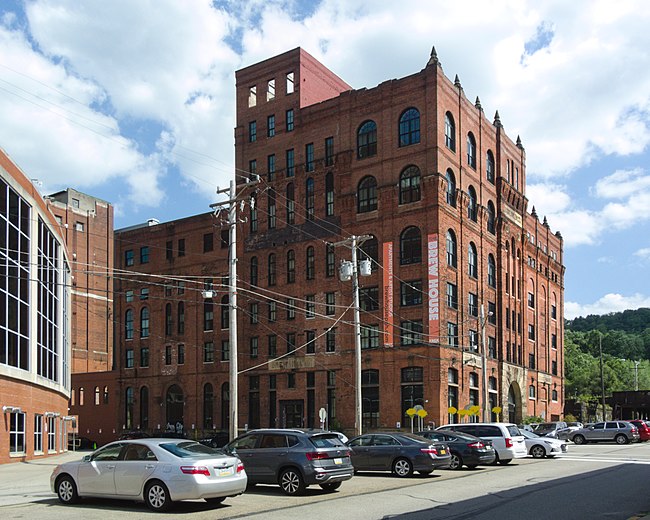
-
A Black Stone Survivor: First Methodist, Knoxville

Few of these black stone buildings are left, but in some of the less prosperous neighborhoods we can still find uncleaned stones. Knoxville is a particularly interesting neighborhood from the point of view of the urban archaeologist: it was prosperous and now is not, so it retains some splendid buildings in their original state, many of them sadly abandoned and decaying. This church, marked “1st Meth. Prot. Ch.” on a 1916 map, is still in use as a nondenominational church, and old Pa Pitt very selfishly hopes that the congregation always sits at that middle point where it has enough money to keep the doors open and not enough to clean the black stones.

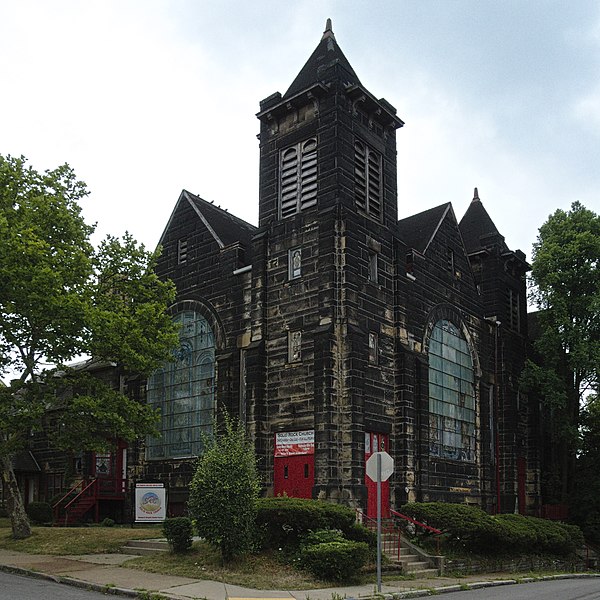
One response
-
Old Engineering Hall, Oakland

Old Engineering Hall at the University of Pittsburgh is a fairly successful marriage of modernism and classicism. It is almost postmodern avant la lettre, with classically inspired details but a shape that owes nothing to the classical world. It was built in 1955, when it was still common for modernist buildings to apologize for themselves by including a few dentils and a suggestion of a Greek-key frieze. This was Engineering Hall for only about fifteen years; the School of Engineering moved out in 1971 (into the uncompromisingly modern Benedum Hall), and since then this building has been put to such miscellaneous uses that the university has never been able to come up with a better name for it than “that building that used to be Engineering Hall.”
